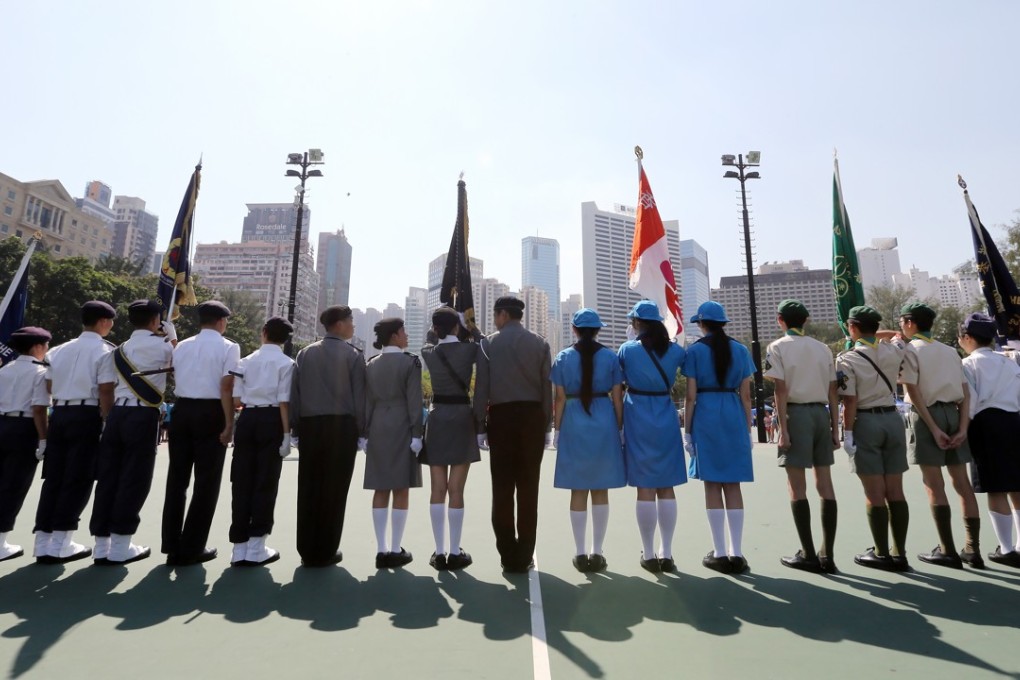Changing Hong Kong people’s traditions won’t make them love China
Vivienne Chow says that a move to change the marching style of uniformed youth groups is just the latest heavy-handed attempt by Beijing and local authorities to instil love for China. Like other attempts, it won’t work

One of the best things I did during my teenage years was joining a uniformed youth group. Throughout my seven years as a member of the Hong Kong Red Cross youth unit, I did not just acquire first-aid skills and cultivate a spirit of community service. I became an enthusiast of the drill practice – weekend training and annual inter-unit drill competition were my favourite after-school activities.
I took pride in carrying forward the tradition of drill practice with my teammates.
Thus it was disturbing to see a political attempt to make an unnecessary change to the heritage of drill practice for uniformed youth groups. To what extent are we willing to ditch the history and tradition that make us who we are today just to demonstrate political allegiance on a superficial level?
According to the Chinese-language newspaper Ming Pao, Hong Kong’s uniformed youth groups have been asked by Beijing’s liaison office to change their current British-style drill to the Chinese style of “goose-stepping” at a flag-raising ceremony on May 4.
The ceremony, to be held at the historic Golden Bauhinia Square, is meant to commemorate the student-led May Fourth Movement in 1919.
It was also reported that the Hong Kong Army Cadets Association, the only uniformed group in the city that adopts the Chinese style of marching, had previously put forward a similar request for other groups to switch their style, though association chairman Bunny Chan Chung-bun denied this.